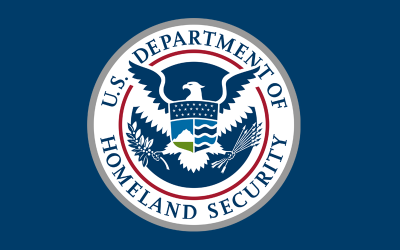Temporary Protected Status

How Families Are Kept Apart by Current Immigration Laws
Family reunification has stood as a central pillar of the U.S. immigration system, dating back to 1965. Despite this, a new study by researchers Maria Enchautegui and Cecilia Menjivar shows that current immigration laws actually work to keep many families apart. Not surprisingly, the authors’ analysis reveals that immigrant… Read More

DHS Grants Temporary Protected Status for Immigrants from Liberia, Guinea, Sierra Leone
Homeland Security Secretary Jeh Johnson announced today that he has designated Liberia, Guinea, and Sierra Leone for Temporary Protected Status (TPS) for the next 18 months because of the ongoing Ebola outbreak in West Africa. This 18-month protected status means that eligible citizens from these three countries will… Read More

Third Federal Court Rejects Government Interpretation of ‘Admission’ into U.S.
This week, the federal district court for the Eastern District of Pennsylvania ruled that when U.S. Citizenship and Immigration Services (USCIS) granted Melvin Medina—a Honduran citizen who entered the United States without inspection on October 9, 1992—Temporary Protected Status (TPS), it “inspected and admitted” him for purposes of adjustment… Read More

District Court Decides Some TPS Beneficiaries May Finally Become Lawful Permanent Residents
When a massive earthquake leveled much of Haiti, and when civil war broke out in Syria, the U.S. government did not blindly send Haitians and Syrians home to near-certain death. Instead, the government did the humane thing and offered safe haven to nationals of those countries who were here… Read More

District Court Rules Grant of TPS Is an Admission for Adjustment of Status Purposes
Washington, D.C.–The American Immigration Council welcomes last week’s ruling by the United States District Court for the Western District of Washington, which held that a noncitizen’s grant of Temporary Protected Status (TPS)… Read More

Will Filipinos Be Granted Temporary Protected Status in the Wake of Typhoon Haiyan?
In the wake of the devastating Typhoon that hit the Philippines, the Department of Homeland Security should consider providing Temporary Protected Status (TPS) to Filipino nationals in the U.S. TPS is an immigration status for nationals of certain countries. The Secretary of Homeland Security designates a country for TPS due to ongoing armed conflict, an environmental disaster or epidemic, or for other “extraordinary and temporary conditions” within that country. TPS gives foreign nationals in the United States protection from deportation, travel authorization, and the ability to work legally while in the United States. As the name states, their status is temporary and does not lead to a green card. Among others, Haiti, Syria, and Somalia are some of the countries currently designated with temporary protected status. Only individuals who can demonstrate continuous physical presence during a period specified by the Department of Homeland Security (DHS) are eligible, as this program is designed for foreign nationals who were already in the United States. Read More

Deportation in the Time of Cholera: DHS’s Mixed Response to Haiti’s Earthquake
The dramatic announcement on May 17, 2011 that the Department of Homeland Security (DHS) would extend Temporary Protected Status (TPS) for another eighteen months to Haitians, including those who entered the country no later than January 12, 2011, is a welcome step forward in the saga of the Haitian earthquake. The decision to extend and redesignate Haiti for TPS has been a long time coming and reflects more than a year of solid effort on the part of advocates and the Haitian community. In many ways, DHS’s handling of the devastating January 2010 earthquake in Haiti is emblematic of the triumphs and tribulations discussed in a recent report issued by the Immigration Policy Center, Second Annual DHS Progress Report: An Analysis of Immigration Policy in the Second Year of the Obama Administration. This critique found that the immigration agencies appear to be tackling issues affecting Haitians independently, failing to coordinate their enforcement and benefits-oriented policies. At times, critical information was disseminated in a limited and ad hoc fashion, generating confusion and unease about DHS policies. Observers have been left questioning how DHS’s priorities are ordered and whether they are integrated at the department level. DHS’s latest actions offer hope that a more coordinated, thoughtful, and humanitarian approach will prevail. Read More

DHS Extends Temporary Protected Status to Haitians
Washington D.C. – Today, the Department of Homeland Security (DHS) took an important step on behalf of Haitians affected by last year’s devastating earthquake, demonstrating the humanitarian side of its immigration responsibilities. Secretary Janet Napolitano announced that DHS would extend Temporary Protected Status (TPS) for an additional eighteen months… Read More

Dissecting the HALT Act: Last Safety Valves in Immigration System Under Attack
Washington D.C. – Tomorrow, Tuesday, July 26, the House Judiciary Subcommittee on Immigration Policy and Enforcement will hold a hearing on the “Hinder the Administration’s Legalization Temptation Act” (HALT Act), a bill that would suspend discretionary forms of immigration relief until January 21, 2013—the day after the next Presidential inauguration. Read More

Granting Refuge: Temporary Protected Status (TPS) for Haitians in the United States
Following the devastating earthquake which struck Haiti on January 12, Homeland Security Secretary Janet Napolitano on January 15 announced “the designation of Temporary Protected Status (TPS) for Haitian nationals who were in the United States as of January 12, 2010.” The “designation will allow eligible Haitian nationals in the United States to continue living and working in our country for the next 18 months.” This means that the 100,000-200,000 Haitian immigrants whom the Department of Homeland Security (DHS) estimates are now in the United States on a temporary basis or without authorization will not be subject to removal as long as there is no functioning country to which they can return, and provided that they do not have criminal records. However, Haitian nationals who qualify for TPS are not receiving permanent residence in the United States or an “amnesty” if they were unauthorized. There are currently 535,000 Haitian immigrants in the United States, with most living in Miami and New York, as well as Boston, Orlando, and Atlanta. Read More
Make a contribution
Make a direct impact on the lives of immigrants.
